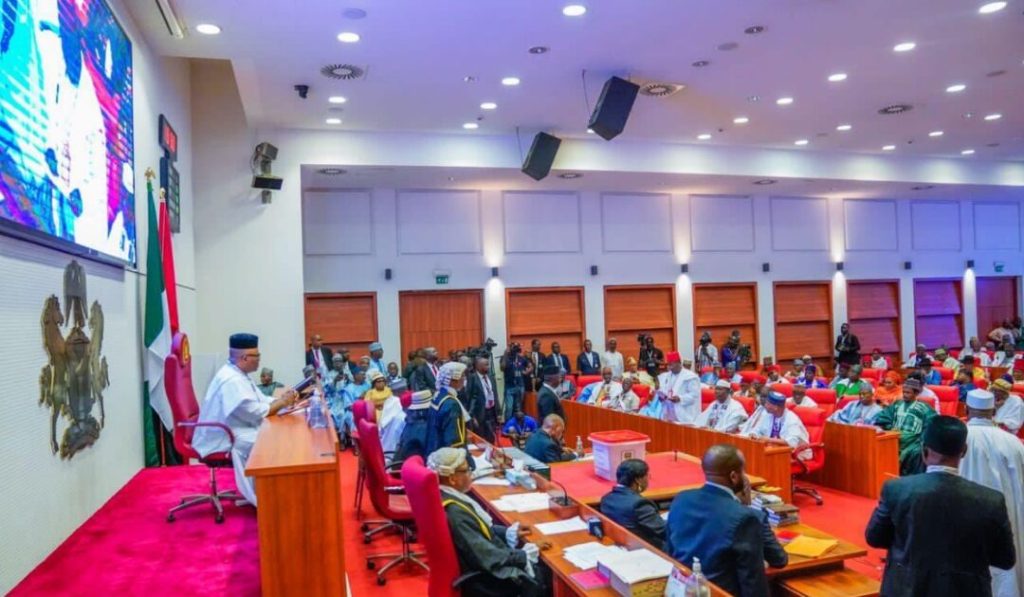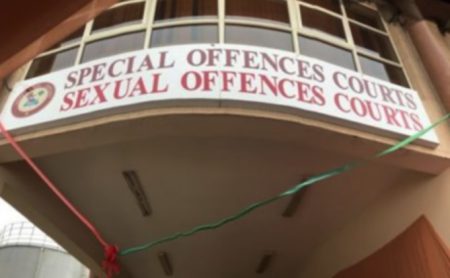A group of legislative lawyers, operating under the Association of Legislative Drafting and Advocacy Practitioners (ALDRAP), has initiated legal action against the Nigerian Senate, demanding a substantial refund of salaries and allowances paid to senators since May 2023. The lawsuit, filed with the Federal Competition and Consumer Protection Tribunal, alleges poor legislative performance and unconstitutional dual office-holding by a significant number of senators. ALDRAP argues that Nigerian constituents, as “consumers” of legislative services, are entitled to a refund due to the Senate’s alleged failure to fulfill its constitutional mandates.
The core of ALDRAP’s complaint centers around what they perceive as underwhelming legislative output. The group claims the 10th Senate has achieved a mere 12% performance rate since its inauguration, a figure they support by referencing the limited number of bills passed compared to those introduced. They point to a disproportionately low number of bills addressing critical national issues like insecurity and agriculture, further emphasizing their claim of inadequate legislative focus. This perceived inefficiency, ALDRAP argues, justifies their demand for a 78% refund of senators’ salaries and allowances, totaling an estimated ₦15 million per month per senator. They contend this refund is a just recompense for the perceived deficit in legislative service delivery.
Adding to their allegations of poor performance, ALDRAP also targets 40 senators accused of concurrently holding positions in both the Nigerian Senate and international parliamentary bodies like ECOWAS and the Pan-African Parliament. This dual office-holding, they claim, is a violation of Section 68 of the 1999 Constitution and further warrants a full refund of all salaries and allowances received. ALDRAP argues that these senators are effectively neglecting their duties to the Nigerian public while simultaneously drawing compensation from multiple sources.
The lawyers further bolster their case by citing specific instances of what they deem legislative malpractice and constitutional breaches. They highlight the passage of the National Anthem Act 2024 and the extension of the Inspector-General of Police’s tenure without adequate public consultation. They also criticize the Senate’s handling of the Rivers State emergency declaration law, alleging a violation of the required two-thirds majority vote as stipulated in the Constitution. These specific examples, according to ALDRAP, demonstrate a pattern of disregard for proper legislative procedure and constitutional adherence.
Further strengthening their argument, ALDRAP draws attention to what they perceive as the Senate’s undue deference to the Executive branch. They cite a statement attributed to Senate President Godswill Akpabio, where he reportedly downplayed the Senate’s role in scrutinizing the Executive. This stance, ALDRAP argues, represents a fundamental breach of the separation of powers principle, a cornerstone of democratic governance. They also point to the alleged punitive measures against Senator Natasha Akpoti-Uduaghan, including a six-month suspension without due process, as further evidence of internal procedural irregularities.
Beyond the internal workings of the Senate, ALDRAP highlights the issue of bill recycling. Referencing a report by OrderPaper, a parliamentary monitoring organization, they claim a significant portion of bills introduced in the Senate were simply reintroduced from previous assemblies, suggesting a lack of genuine legislative initiative. This practice, they argue, further contributes to the perception of legislative stagnation and inefficiency. They also underscore the disproportionately low number of bills passed in both the Senate and the House of Representatives, painting a broader picture of legislative underperformance across the National Assembly.
In conclusion, ALDRAP’s legal challenge against the Nigerian Senate rests on multifaceted arguments centered around alleged poor performance, constitutional breaches, and a perceived lack of accountability. They contend that the Senate’s legislative output has been significantly below par, with a disproportionately low focus on critical national issues. Furthermore, they accuse a substantial number of senators of violating the constitution through dual office-holding and neglecting their responsibilities to their constituents. By demanding a refund of salaries and allowances, ALDRAP seeks to hold the Senate accountable for what they perceive as a dereliction of duty and a betrayal of public trust. They argue that without such intervention, the alleged culture of legislative underperformance and disregard for constitutional principles will persist, ultimately undermining the democratic process and harming the interests of the Nigerian people.














